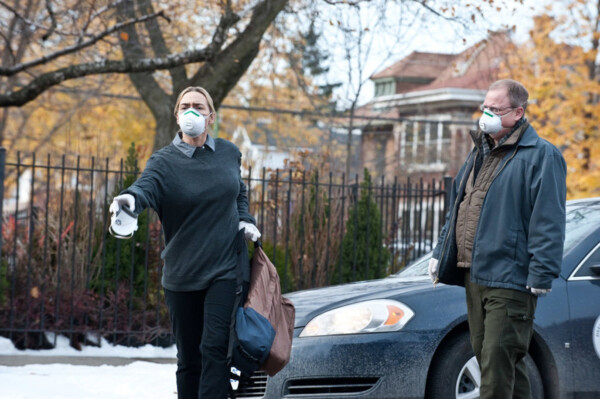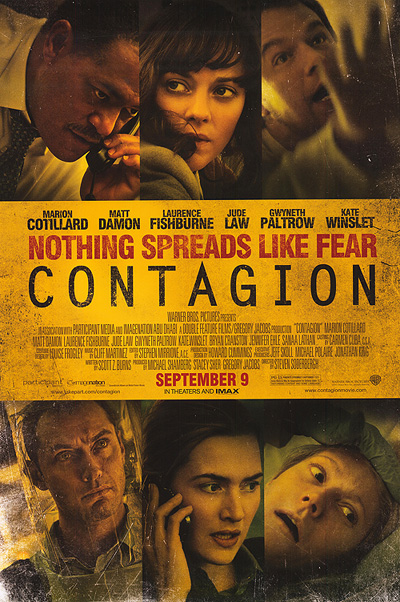Worried about Facebook stealing your info? Worry not

Image courtesy of Raw Pixel by way of a Creative Commons license.
OK FB haters, I’m going to do something I vowed not to do because, frankly, I was hoping the people who haven’t figured it out would never figure it out as they tend to be the loudest complainers.
Let’s say your favorite website (or the Website You Love to Hate) switches its commenting system to FB. It’s a well-known fact that if you start a FB account you are damned to the Lake of Fire for all eternity as the Cloven-Hoofed One has admin access to FB’s user database. Yet you yearn (that’s a lot of Y’s) to post your profane epistles (that’s a lot of P’s) on the Website You Love to Hate.
What to do?
Make a FB account strictly for commenting at the Website You Love to Hate.
To start an account you must provide FB with (a) a first name, (b) a last name, and (c) a working e-mail address. From there the Cloven-Hoofed One does the rest, somehow (through dark majick no doubt) ascertaining your credit card number, the surface address of your firstborn’s firstborn, and that little folder in your My Documents folder with all those, ahem, * pictures. *
How do you thwart the intrusions of His Horned Self?
You go to a place like Mail.com and sign up for an e-mail address. Let’s call it [email protected]. Let me reassure all you AOL users on dailup, it’s FREE! You’ll have lots of money left over for the 2 o’clock buffet at Golden Corral.
Then your return to the hated halls of FB, type in “Crabby” as your first name (or “CrabbyT” if you think you might record your complaints as a rap album), “Crabopolis” as your last name, and “CrabbyTCrabopolis” as your e-mail address. You may also need to type in a Captcha but don’t worry, it ain’t captchaing your soul, and BAM! You’ve got a FB commenting account.
Let’s say at a later date you’re on the Website You Love to Hate and want to leave a comment. You type in your thoughts (and I’m using the term loosely), you hit ENTER, and a prompt asks you to sign in to your FB account. You type in your e-mail addy, your password, and BAM (Emeril, are you listening?), your insights (loosely) appear for everybody to savor.
Your credit card information is safe. You have not surrendered your firstborn’s firstborn’s surface address. And nobody but you and your teenage son will see that hidden folder of pictures.
And here’s an important distinction. I’ll use all caps because I want to make sure you hear me: YOU NEED NEVER VISIT THE HATED HALLS OF FB.You remain on the Website You Love to Hate without having to “friend” anybody or “tweet” (somebody actually said that).
So please. Enough of the sturm und drang. The Earth will still (that’s a lot of L’s) spin on its axis. The stars will remain in the heavens. Lady Gaga will wear a dress made of Skittles.
Life will go on.
About the author:
Del Stone Jr. is a professional fiction writer. He is known primarily for his work in the contemporary dark fiction field, but has also published science fiction and contemporary fantasy. Stone’s stories, poetry and scripts have appeared in publications such as Amazing Stories, Eldritch Tales, and Bantam-Spectra’s Full Spectrum. His short fiction has been published in The Year’s Best Horror Stories XXII; Alfred Hitchcock’s Mystery Magazine; the Pocket Books anthology More Phobias; the Barnes & Noble anthologies 100 Wicked Little Witch Stories, Horrors! 365 Scary Stories, and 100 Astounding Little Alien Stories; the HWA anthology Psychos; and other short fiction venues, like Blood Muse, Live Without a Net, Zombiesque and Sex Macabre. Stone’s comic book debut was in the Clive Barker series of books, Hellraiser, published by Marvel/Epic and reprinted in The Best of Hellraiser anthology. He has also published stories in Penthouse Comix, and worked with artist Dave Dorman on many projects, including the illustrated novella “Roadkill,” a short story for the Andrew Vachss anthology Underground from Dark Horse, an ashcan titled “December” for Hero Illustrated, and several of Dorman’s Wasted Lands novellas and comics, such as Rail from Image and “The Uninvited.” Stone’s novel, Dead Heat, won the 1996 International Horror Guild’s award for best first novel and was a runner-up for the Bram Stoker Award. Stone has also been a finalist for the IHG award for short fiction, the British Fantasy Award for best novella, and a semifinalist for the Nebula and Writers of the Future awards. His stories have appeared in anthologies that have won the Bram Stoker Award and the World Fantasy Award. Two of his works were optioned for film, the novella “Black Tide” and short story “Crisis Line.”
Stone recently retired after a 41-year career in journalism. He won numerous awards for his work, and in 1986 was named Florida’s best columnist in his circulation division by the Florida Society of Newspaper Editors. In 2001 he received an honorable mention from the National Lesbian and Gay Journalists Association for his essay “When Freedom of Speech Ends” and in 2003 he was voted Best of the Best in the category of columnists by Emerald Coast Magazine. He participated in book signings and awareness campaigns, and was a guest on local television and radio programs.
As an addendum, Stone is single, kills tomatoes and morning glories with ruthless efficiency, once tied the stem of a cocktail cherry in a knot with his tongue, and carries a permanent scar on his chest after having been shot with a paintball gun. He’s in his 60s as of this writing but doesn’t look a day over 94.
Contact Del at [email protected]. He is also on Facebook, twitter, Pinterest, tumblr, TikTok, Ello and Instagram. Visit his website at delstonejr.com .

Image courtesy of Warner Brothers.
—
“Contagion.” Starring Gwyneth Paltrow, Matt Damon, Laurence Fishburne, John Hawkes, Jude Law, Marion Cotillard, Kate Winslet, Jennifer Ehle, Elliot Gould. Directed by Steven Soderbergh. 105 minutes. Rated PG-13.
Mladen’s take
Remember the best scene in the second-best movie made, “Jaws”?
Brody is ladling putrid chum into the Atlantic from the stern of charter boat Orca, when the massive white shark suddenly raises its head out of the water to look at him and then disappears as quickly and completely as it appeared.
The sheriff reflexively straightens, stiff with disbelief and fear, and says to the others aboard, “We need a bigger boat.”
Well, a similarly portentous scene unfolds between two pathologists early in the newly released film, “Contagion.”
The pathologists, one senior and the other his junior, open the skull of the dead character portrayed by Gwyneth Paltrow. As the junior pathologist pulls back the brain of the deceased, the senior medical examiner, stunned by what he sees, urges his cohort to step away from the table.
The more experienced pathologist tells the younger one that other health care professionals must be informed immediately about what they had uncovered.
“Who do I call?” asks the junior pathologist.
“Everybody,” responds the senior medical examiner. “Call everybody.”
“Contagion,” a story about a global pandemic that eventually wipes out 25 percent of humanity, is methodical. Grumpy Del would say plodding.
“Contagion” is about the way acts of selfishness or selflessness, profitmongering or altruism, panic or poise by individuals converge to create a collective reaction to a deadly virus. Del would say, “That’s boring. I want looting, gunfire, cannibalism, and other forms of grand-scale depravity.”
Alas, Del. What has become of you?
“Contagion” tackled the big questions. It just ignored some of the details.
And, the movie’s message is clear: We’re mostly on our own when a natural disaster strikes. The goal is to stay alive long enough for laws and social constraints to regain their hold.
As “Contagion” unfolds, we see a bitter blogger played by Jude Law use the Internet to market a snake oil that promises to cure those afflicted by MEV-1, a genetically simple, rapidly mutating monovalent virus. The blogger’s sales pitch includes government and corporation conspiracy theories with just enough facts to make them plausible.
A father, though he and his daughter are naturally immune to MEV-1, protects her with tenacity, but never uses violence. When a mobile Meals-Ready-To-Eat distribution center runs out of meals, others waiting in line break the cordon to storm the trucks. He protects a lady who’s attacked by another person because she had a box of MREs.
“Contagion” also notes failures in leadership. The American president flees to a hidey-hole for protection against the pandemic. By leading from the rear, his act of taxpayer-subsidized privilege contributes to the panic contorting the lives regular people.
Meanwhile, epidemiologists are working feverishly to develop a vaccine. One goes as far as using herself to test a vaccine that kept a MEV-1-infected monkey alive.
“Contagion” is filled with an all-star cast, but there’s no lead actor or actress. Though the movie shows the effect of the pandemic on well more than a dozen lives, its story is coherent.
“Contagion” is a good movie, maybe even a very good movie, but it’s not for action or blood-and-gore junkies such as Del.
Be patient, pay attention, recall what “SARS” stands for, and watch. You’ll know that you were affected by the movie if you exit the theater wondering how you’d protect your family from an unbiased – men, women, and children die – unseen organism and the chaos it unleashes.

Del’s take
The problem with a guy who loved “Transformers” scolding a guy who wanted a little more action in his “action-thriller” is that Mladen didn’t actually see “Contagion.” About halfway through he fell asleep and dreamed it was a terrific movie.
Which is not to say “Contagion” is a bad movie. Rather, it isn’t the movie I was expecting. Billed as an action-thriller, “Contagion” comes across as a medical procedural about how to create a flu vaccine, leavened by low-grade attempts to humanize the story by giving us glimpses of ordinary people and how they react to a dangerous virus sweeping across the world.
“Contagion” is told through a series of vignettes involving multiple viewpoints – officials with the Centers for Disease Control (Fishburne, Winslet and Ehle), the World Health Organization (Cotillard), a so-called “journalist” (Law), a janitor (Hawkes), and an ordinary guy (Damon) whose philandering wife has unwittingly brought the disease to America.
Medical officials quickly recognize the disease’s lethal potential and try to act but, as usual, skeptical and blundering politicians slow their progress. Meanwhile, the disease spreads, social order begins to fray and a real breakdown of the processes that sustain our society seems imminent. Only a vaccine will prevent the collapse of civilization.
“Contagion” attacks not only our immune system but the institutions dear to our American hearts. Marriage is stricken with infidelity; the sanctity of our death rituals is sullied by mass graves, body bags and a ghoulish funeral director who refuses to handle disease-ravaged corpses; law and order gives way to looting, robbery and murder. Religion is ignored.
Oh, and there’s the Internet, which receives a well-deserved bashing. Jude Law plays the part of an online conspiracy theorist who believes the disease, MEV-1, is a money- and power-making plot engineered by a cabal of government and corporate entities bent on controlling our lives. He claims a natural remedy, not the government’s possibly autism-inducing vaccine, can defeat the virus. But it’s all a fraud … or is it? At one point Law is told by Dr. Ian Sussman (Gould): “You’re not a journalist. You’re a blogger,” and “Blogging is like graffiti with punctuation.”
Law turns in a powerful performance as irresponsible and disruptive blogger Alan Krumwiede. Also excellent are Fishburne as the CDC’s Dr. Ellis Cheever and Winslet as Dr. Erin Mears. Ehle turns in the best performance as Dr. Ally Hextall, who tests the vaccine on herself. Paltrow is her usual, giggly self, and Damon looks positively vampiric throughout, though he does get one good line. After a doctor tells him his wife has died, Damon’s character, Mitch Emhoff, not quite processing what he’s been told, responds with, “Right. But can I go talk to her?”
“Contagion” is strongest when addressing the medical aspect of the pandemic; it is weakest when dealing with the human component. Soderbergh’s austere direction and his focus on the clinical rather than the emotional render a sterile, dare I say boring treatise on disease, medicine and government. Based on the trailers I was expecting more – no, Mladen, not fires and explosions.
Maybe just a few people I could care about.
On a scale of 1 to 10 I would give “Contagion” a 7. Not a bad movie, but not the action-thriller I hoped to see.
Mladen Rudman is a former journalist and technical editor. Del Stone Jr. is a former journalist and author.